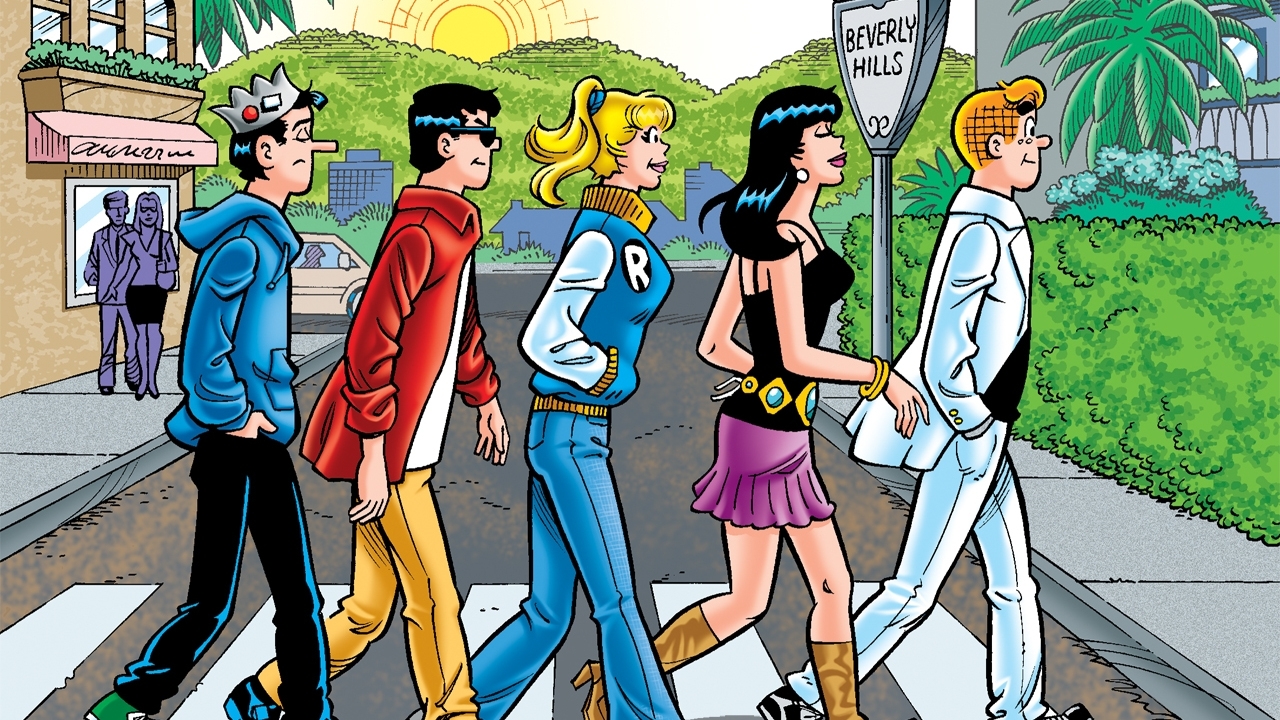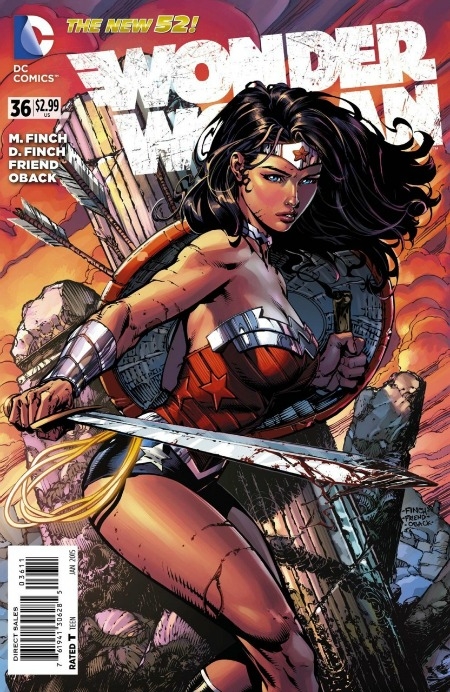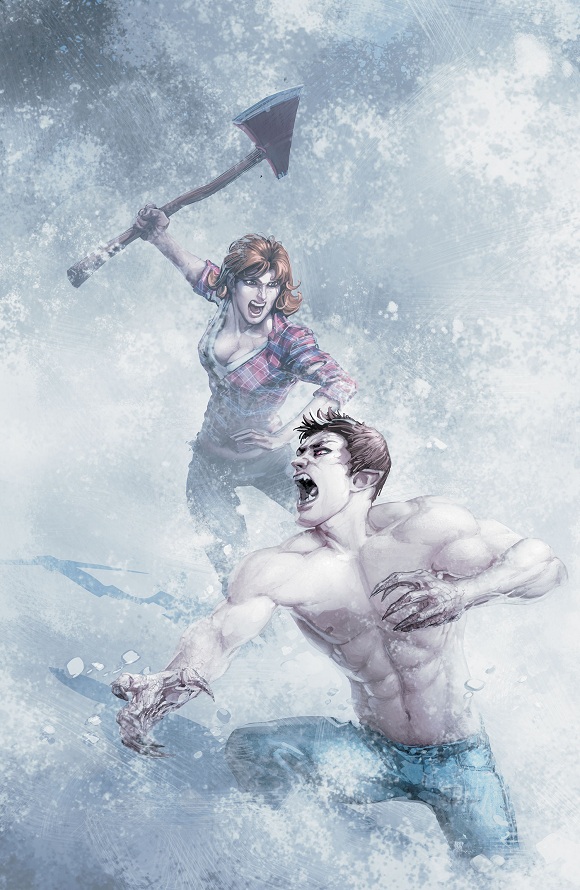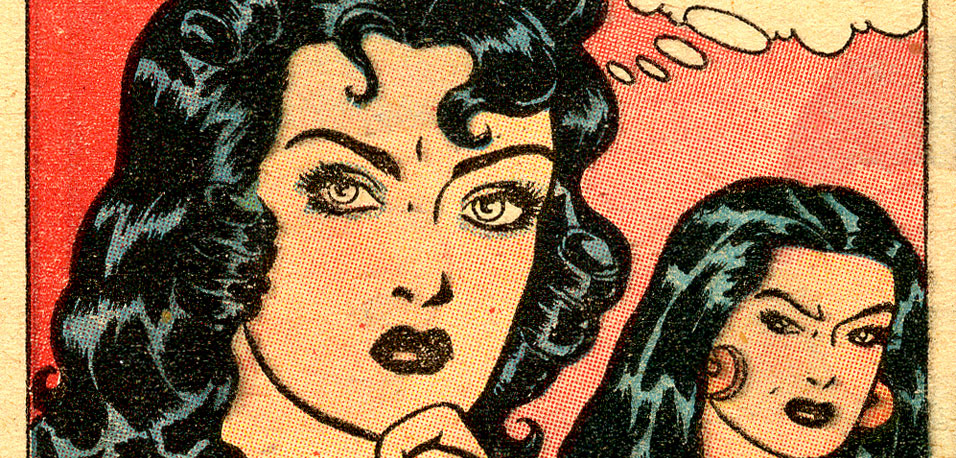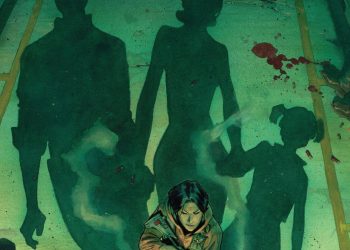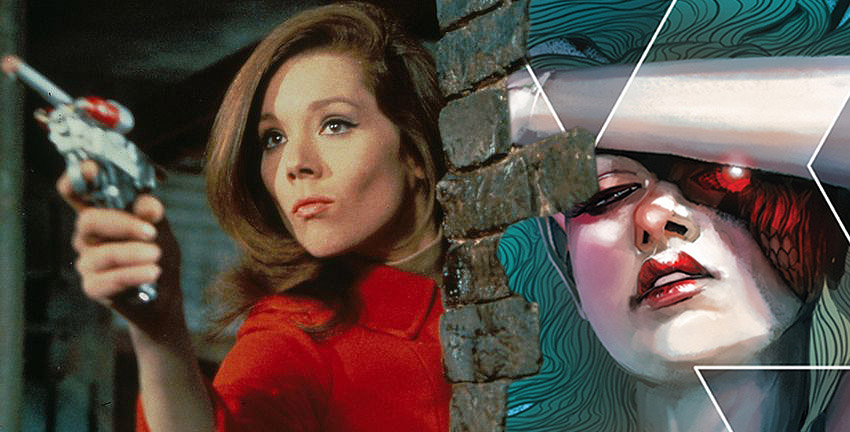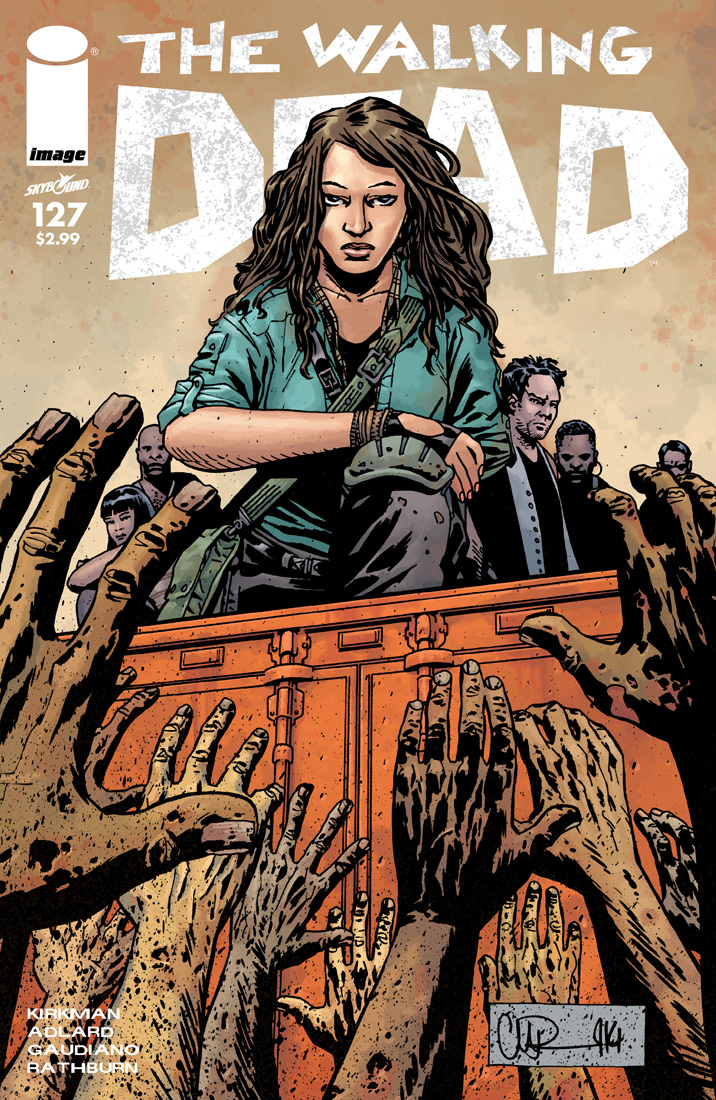Maria Werdine Norris is a final year PhD candidate at the London School of Economics and Political Science. Her research is on the British Counterterrorism strategy and legislation, with a focus on nationalism, security and human rights. You can find her on Twitter as @MariaWNorris
Click here for the introduction to the Comics, Human Rights and Representation Week.
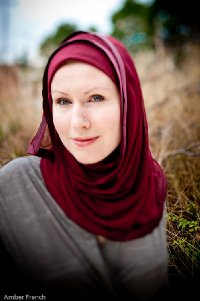
G. Willow Wilson is the award-winning author of Ms. Marvel. She lived in Egypt during her early twenties; her first graphic novel, Cairo, was based there and was listed as a top graphic novel for teens by both the American Library Association and the School Library Journal. Her comic series Air was nominated for the Eisner Award, and her first novel, Alif the Unseen, won the 2013 World Fantasy Award.
I think it is important to say that, without any editorial prompting, Ms. Marvel comes up in every article.
That’s amazing. She’s really taken on a life of her own, which is incredible. It’s exactly what you want from a comic book character because they survive their original authors. Somebody else will go on to write her, and what you want is for her to have a life of her own.
Did you expect Kamala Khan to be this big?
Never in my wildest dreams! Both myself and Sana Amanat (series editor) thought ‘if we can get one year out, 10 to 12 issues, we’ll be satisfied. And then they’ll cancel us and we’ll all go home, and we’ll probably get an Eisner nomination or something. And if we do that, it will be ok and we’ll have done our job’. So we were thinking very short term. We didn’t think this book would survive, let alone become the phenomenon that it has become.
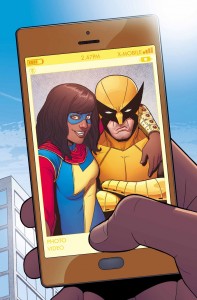
What do you think is behind the Ms. Marvel phenomenon?
I think a large part of it is timing. It is a really interesting time for comic book audiences. More and more women and minorities are starting to read comics and become comic book fans. Comic book conventions here in the US are now a 50/50 split between men and women in attendance. It used to be overwhelmingly male, now it’s a more even mixture. With that has come a demand for different stories and a dissatisfaction with the idea that female superheroes are just there to be arm-candy for guys, or to provide motivation for the male characters and not to stand in their own right with their own stories. And so there has been a big push for that and it has been going on for several years now.
People who read comic books are becoming more and more vocal about what they think and feel and this has been enabled in large by social media. People will post things on Tumblr, Twitter and Facebook and so the conversation is much bigger. And when there is criticism about lack of representation and hateful or unhelpful representation of different minority groups in comics, you hear about it. And the publishers hear about it. It’s impossible to ignore these things. And so I think there has really been a groundswell of support for new and different books. I think people often say they want to read things that are new and different, but they don’t always buy them. This is one of those cases in which the two have lined up. Which is very, very cool.
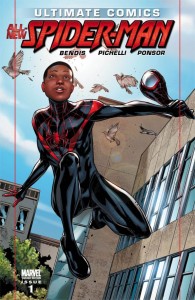
[Marvel publisher] Dan Buckley has recently said that diverse books such as Ms. Marvel and Miles Morales: Ultimate Spider-Man are particularly successful in the digital market.
Yes! And what that says to me is new readership. New readers are the ones who are generally coming through the digital market. They are already reading on their smartphones and their tablets, and comics are the logical step beyond that. So that makes me very, very pleased. Everyone loves Miles Morales and he is very much a template for the Ms. Marvel story. His story utilises very classic superhero themes, you know, the young kid who is kind of on the outside and is endowed with powers. It’s a coming of age story and in many ways it is very American. And there is a very definite relationship between those two characters and those two audiences.
You are a Muslim woman. Kamala is a Muslim girl. But Islam is not a plot point.
No, it isn’t. I don’t think we’ve ever used the word Islam in the book! She really is meant to reflect the day-to-day experience – obviously with superpowers attached – of ordinary, American Muslim girls. So we decided straight away that she wouldn’t wear the headscarf. I do, but I’m in the minority. The vast majority of American Muslim women do not cover their heads. We wanted her family to be fairly conservative, but in a recognisable way. I use the royal ‘we’ – so many people worked on this project – but I’m talking in particular about Sana Amanat, the series editor, who is herself a Pakistani American woman. And so obviously without her point of view and understanding, the series would not be what it is. The only way we could have gotten this close to recognisable authentic experiences is because both the writer and the editor are Muslim women. I think if it had been anything else, there would have been pressure to conform to a certain narrative. So we really just wanted to show that her background, her belief system and the culture of her parents certainly informs who she is as a person, but she’s also got a personality!
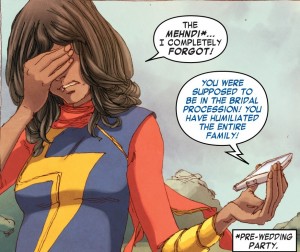
Someone once said that the great hypocrisy of how people in the West tend to view Muslims is that they assume that everything a Muslim does is because of the Q’uran. What we wanted to do is paint a much more realistic portrait of what life is like for a young American Muslim girl, and not to paint over the uncomfortable parts. There are conflicts with her family, there are parts where she does disagree and disobeys her parents; she’s got an older brother who is quite religious – he’s the family’s salafi – so we show the intergenerational changes. We try to show the reader that Islam is not monolithic, that there are divisions of belief and practice within the community and within individual families. The dad is fairly traditional in the sense that he is very protective of his daughter, they argue a lot about her not being able to go out at night to mix-gendered parties. He pushes her a lot to get good grades. Her mom is very concerned about the family pride, wanting Kamala to be a dutiful daughter. Her brother thinks the family is not religious enough, so there is a lot of push and pull at the dinner table. But we wanted to show that this comes from a place of love. This exists in all families so it was very important to us to show that.
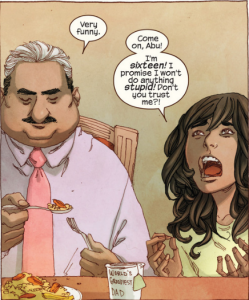
It’s funny because even though my family is not Muslim, my dad is very similar to Kamala’s!
I get a lot of mail from people who say that. And not just Muslims either! There’s a wonderful comic book store in Long Island run by a Jewish Orthodox family, and the proprietor was tweeting me saying that the book was just like his childhood! So it is very gratifying to see that Ms. Marvel crosses cultural boundaries.
In the development process, were there any concerns within Marvel about making the new Ms. Marvel a Muslim girl?
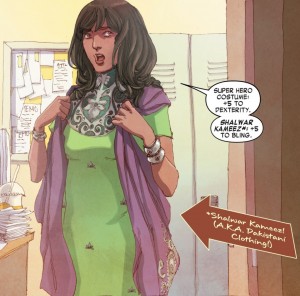
There were probably debates to which I was not privy. I know that there was a tentative fear at the beginning that we’d get backlash from the Muslim community and that we needed to be careful not to push the wrong buttons. I think this comes back to the creative team. Because Sana and I live in that community, we know how and when to push the envelope. And when it comes down to it, this is why representation matters. You want people who are in a position to tell authentic stories.
Every so often I get backlash on twitter, largely from people who are right-wing and against immigration. Very occasionally I will get a pushback from very conservative Muslims asking why Kamala is not wearing a headscarf. And I tell them that she doesn’t wear a headscarf because that is not the norm. But the vast, vast majority of responses have been positive. People have really embraced this character and this has been very gratifying to see.
In the book, Nakia (Kamala’s best friend) wears a headscarf.
Yes. She does. And there’s an assumption in the beginning from one of the characters that she has been forced to wear it by her parents. But actually her parents wanted her to take it off! This is quite true in a lot of families. We wanted to show the full-range of beliefs. Nakia will be very familiar to people who come into their own as young adults.

How has Kamala been received by the Muslim community?
Very positively. Before the series started, there was an element of trepidation. And I understand because when I hear that there will be a Muslim character on a tv series or film, I go ‘oh boy’. The character is often a ‘positive representation’ because they reject their background. This undermines the character, and they become a mouthpiece for the political or social aims of the non-Muslim showrunners. So I think there was a little concern about that, especially when they saw that Kamala’s older brother would be very conservative. People were like ‘Oh my God, will they make him a terrorist?’
But that disappeared when the series came out. It has been a very positive thing. I’ve been shocked. I was readying myself for a battle. And it hasn’t happened.
I gave a Pakistani friend a copy of Ms. Marvel and she is a huge fan. She commented straight away on how important Kamala is.
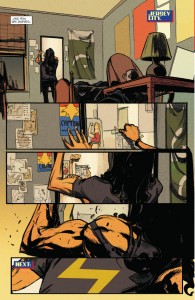
Some intrepid person did go to Pakistan and asked people in the street what they thought about the new Ms. Marvel. They didn’t know who she was. To me, Ms. Marvel is very much a book that is particular about the experiences of the 2nd generation, of the children of immigrants growing up in the West. There are no references to Pakistan itself except through the anxieties of the parents and the children who are trying to honour the culture of their parents. We may do an issue when she goes to visit her grandparents in Pakistan. But the book is very particular to the experience of immigrant children growing up and trying to balance those two worlds. This is very different from the life of a Pakistani woman growing up in Pakistan, and dealing with very specific political and social issues.
It is a different context. But I still think that there is something about Ms. Marvel and Kamala Khan that is universal. She feels like a real person.
That is wonderful to hear. That is really the goal of any artistic work, that, irrespective of who the reader is, they will be able to find something that speaks to them. Maybe it is not the thing that you intended or even something that you are aware of, but something. So it is wonderful to hear that.
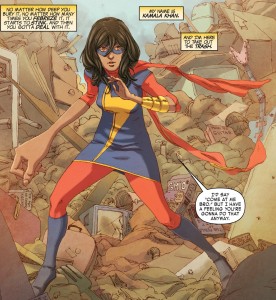
I have a final question, and you do not need to answer it if you can’t. But can you give us any hints about what will happen to Ms. Marvel during [Marvel event] Secret Wars?
Some of it I’m not allowed to talk about. We are doing a Secret War arc in Ms. Marvel. We’re doing a ‘last days’ arc, so we’re going to be showing what’s happening on Earth in the lead up to this event. And I can’t say too much but something that the fans have been begging for since day 1 will be occurring, at some point in the not too distant future.
No! I had a secret wish that would happen! So will it?
I can’t say anything. All I can say is the most asked for thing that we get. It’s the question we get most frequently. And finally, it is going to be answered.
People are going to go crazy over this.
(laughs) I have revealed nothing!


